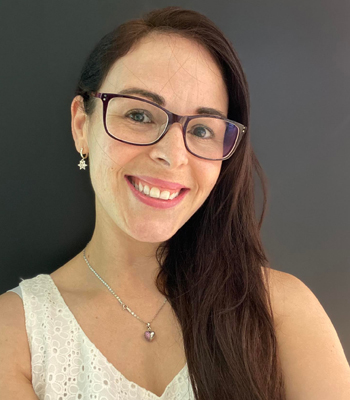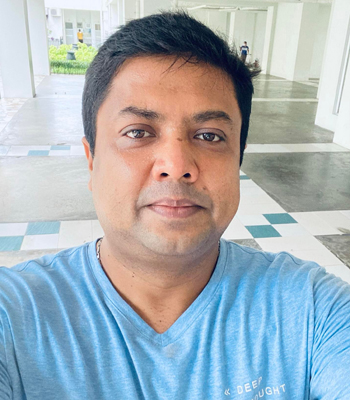Foreigners living in Vietnam, though glad that authorities and most people act carefully, remain very watchful against Covid-19 and admittedly a bit worried.
As the Christmas and New Year holidays approach, Vietnam has been seeing a rapid increase in the number of cases.
Laura Dawes Vu, a Canadian living in Hanoi, says she is worried because she has never seen Hanoi having such many cases since Covid first broke out in early 2020.
“When people are going out and carrying out their daily activities, I am not sure who around me could have Covid, which is a concern.”
However, one good sign is that both people and authorities are aware of the risk and act carefully, she says.
People do not gather in large numbers unlike in the past and try to keep a safe distance from one another, she notices.
In public, authorities require people to follow the 5K safety rules and scan QR codes, which is a great way to keep track of people’s movements, she says.
But she and her family are not letting their guard down. She strictly follows safety rules when she goes out. Her husband and two children wear masks, avoid large crowds and do not talk in elevators. They have rescheduled birthday parties and other events for a safer time.
 |
|
Laura Dawes Vu in Hanoi in December, 2021. Photo courtesy of Laura Dawes Vu |
Alex Pike, an American in Hanoi, thinks people are reckless. Around the West Lake, where he lives, he sees roads extremely busy with people cycling and walking all day long, and restaurants seem full, all cause for concern, he says.
But he too hails what city authorities are doing as a great job in keeping people safe, and assumes they will shut things down if the number of infections continues to be large.
In recent days Hanoi has been recording more than 1,000 cases a day. On Tuesday the number topped 1,700, the highest in the country.
Some downtown districts like Hai Ba Trung and Dong Da, five wards in Hoan Kiem District and two wards in Tay Ho District have suspended non-essential activities and will allow only food and drink takeout until further notice.
Citing heightened coronavirus risk in these areas, they also urge local residents to limit non-essential activities and encourage the use of the Internet for their requirements.
Briton Gavin Gross says it is good to see most people wear masks and comply with rules to prevent virus transmission.
Though not too anxious about the current situation in Hanoi, he and his family wear masks when they go out, wash hands constantly and avoid crowds.
In HCMC, South Korean Kwon Hyun Woo says though the infection rate is increasing, the mortality rate is gradually decreasing. Authorities have developed an effective Covid prevention system based on the Internet, he says.
But he fears people have dropped their guard and are increasingly ignoring safety rules, and as a result is worried about going to public spaces. That he has a two-year-old child makes him doubly anxious.
Another HCMC resident, Indian Praveen D’souza, says despite the concerning Covid situation he is free from fear because he is fully vaccinated. Besides, most people around him are careful, wearing masks and adopting social distancing, he says.
While he thinks it is not easy for authorities to bring Covid completely under control in such a large city, he is highly appreciative of them for carrying out vaccination rapidly and without discriminating between Vietnamese and foreigners.
As a result, life seems to be getting back to normal, he says.
So far 77.5 million people in the country have received at least one vaccine shot, with 63 million also getting a second.
Prime Minister Pham Minh Chinh has instructed the Ministry of Health and provinces to ensure the third shot is given to everyone aged 18 and above by January.
 |
|
Praveen D’souza in HCMC in August, 2021. Photo courtesy of Praveen D’souza |
Expectations in 2022
Vu says a couple months ago she was looking forward to seeing her two kids, in first grade and kindergarten, return to school.
“I really hope to see an end to Covid in the coming year; then my children could go back to school.”
For months now the country’s 22 million students have had to rely on online schooling.
In Hanoi, grade 12 students were allowed to attend school in early December, but in some high-risk districts, schools closed again days later.
In HCMC, students in grades nine and 12 have been going to school since December 13.
Gross wants to travel home to see his elderly parents and family in London, but fears then he will not be able to return to Vietnam to his loved ones because of long-drawn procedures and expensive travel.
The government has approved the resumption of international flights on January 1 to nine destinations that have high vaccination rates and good pandemic control, and Britain is not in the list yet.
The nine are: Bangkok, Beijing/Guangzhou, Phnom Penh, San Francisco or Los Angeles, Seoul, Singapore, Taipei, Tokyo, and Vientiane.
Charlotte Brown, an Australian living in HCMC, wants people around her to accept the fact the virus is in the community and hard to avoid.
People need to take personal responsibility for acting carefully and protecting the most vulnerable members of the community, she says.
Pike and D’souza are optimistic the high rate of vaccination in Vietnam will make people less vulnerable to infection, especially at a time when the new Omicron variant is spreading in many countries.
- Reduce Hair Loss with PURA D’OR Gold Label Shampoo
- Castor Oil Has Made a “Huge” Difference With Hair and Brow Growth
- Excessive hair loss in men: Signs of illness that cannot be subjective
- Dịch Vụ SEO Website ở Los Angeles, CA: đưa trang web doanh nghiệp bạn lên top Google
- Nails Salon Sierra Madre
 VnExpress News The News Gateway of Vietnam
VnExpress News The News Gateway of Vietnam





